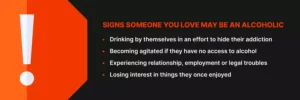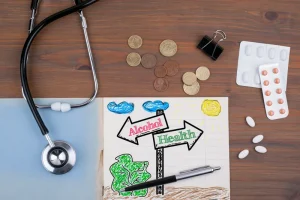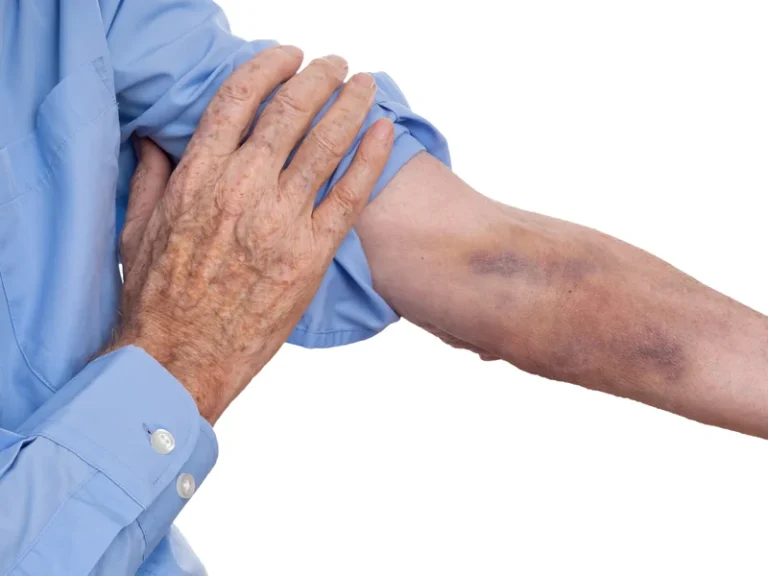
Counseling is done in a safe environment, either one-on-one or in a group. Group therapy is often done with other people who have been through similar events. PTSD is often treated with one or more of the following forms of counseling. Talk with your healthcare provider about your options so you can decide on a counseling format that works for you.
- It can also affect your feelings about yourself and your role in society.
- Still, the findings are clinically meaningful when they represent, a change in functioning before and after trauma.
- Examples include post traumatic stress disorder, depression, and the dementia conditions.
Impact of Anger and PTSD

Or you may lose all awareness of what’s going on around you and be taken completely back to your traumatic event. In session, you will be asked to rate the intensity of the event on a scale of 1 to 10, with 10 being the most intense. As treatment progresses, the goal is to reduce the emotional charge around the event to a lower number by “tapping in” a new belief.
Post-Traumatic Stress Disorder
The Substance Abuse and Mental Health Services Administration has a online treatment locator to help you find mental health services in your area. Older children and teens usually show symptoms more like those seen in adults. They also may develop disruptive, disrespectful, or destructive behaviors. Older children and teens may feel guilty for not preventing injury or deaths. Sometimes, learning that a friend or family member experienced trauma can cause PTSD.

NIMH Information Resource Center
Your sympathetic nervous system responds to trauma with a fight, flight, freeze, or fawn response. This response protects you by preparing your body for action against a threat. During this response, your body releases the stress hormone cortisol. It should be emphasized that overall, decrements in memory performance due to PTSD are subtle, with performance falling either in the low average range, or in the normal range yet significantly lower than controls. Still, the findings are clinically meaningful when they represent, a change in functioning before and after trauma.
Get help from Veterans Crisis Line
Understanding your symptoms and signs and educating yourself about health conditions are also a part of living your healthiest life. The links above will provide you with more detailed information on these medical conditions to help you inform yourself about the causes and available treatments for these conditions. Because of its broad effects on the nervous system, PTSD can cause some less well-known symptoms, too, including dissociation, brain fog, and physical pain.
- Effective psychotherapies often emphasize a few key components, including learning skills to help identify triggers and manage symptoms.
- Older children and teens usually show symptoms more like those seen in adults.
- Anger regulation deficits in combat-related posttraumatic stress disorder.
- Each model represents either end of the nature vs nurture paradigm – either that the environment impacts neurobiology or that, genetics influence one’s predisposition to PTSD.
- Therefore, it’s important to try to increase your awareness of their early symptoms.
- Being aware that you have them is extremely vital to coping with PTSD.
- For example, they may learn to say to themselves, “Even if I don’t have control here, I won’t be threatened in this situation.”
Etat de stress post-traumatique et fonctionnement de la mémoire déclarative
It may mean seeking out a mental health professional for a brief course of therapy. Some people may also find it helpful to turn to their faith community. Post-traumatic stress disorder symptoms may start within one month of a traumatic event, but sometimes symptoms may not appear until years after the event. These symptoms cause significant problems in social or work situations and in relationships. They can also interfere with your ability to go about your normal daily tasks. Post-traumatic stress disorder, aka PTSD, is a serious mental health condition once attributed only to post-war veterans.

Resources and support

Post-traumatic stress disorder can disrupt your whole life — your job, your relationships, your health and your enjoyment of everyday activities. Whether you’re a mental health professional seeking more knowledge or someone who is personally affected, understanding how to handle and prevent ptsd blackouts is crucial. If you’re ready to find support, the Anxiety & Depression Association of America and the International Society for Traumatic Stress Studies can help you locate a mental health professional who specializes in trauma. Art therapy can help people with PTSD process traumatic events in a different way. Art can be a way to express how an individual is feeling when words are not enough.
Proactive Measures to Prevent PTSD Blackouts
- Dissociation-a common feature of posttraumatic stress disorder (PTSD)-involves disruptions in the usually integrated functions of consciousness, memory, identity, and perception of the self and the environment.
- So, if you’re living with PTSD and you can’t get enough sleep at night, this can intensify your brain fog.
- Transforming the understanding and treatment of mental illnesses.
Barrett et al30 found that veterans with PTSD alone did not exhibit impairments in neurocognitive functioning, whereas veterans with PTSD and a concurrent, diagnosis of depression, anxiety, or substance abuse did. Our group9 systematically examined the independent, and interactive contributions of PTSD and alcohol abuse history using a four-group design and found verbal memory deficits specific to PTSD. Getting treatment as soon as possible can help prevent PTSD symptoms from getting worse. Post-traumatic stress disorder (PTSD) is a mental health condition that’s triggered by a terrifying event — either experiencing it or witnessing it. Symptoms may include flashbacks, nightmares and severe anxiety, as well as uncontrollable thoughts about the event.
When to Contact a Medical Professional
- If you’re ready to find support, the Anxiety & Depression Association of America and the International Society for Traumatic Stress Studies can help you locate a mental health professional who specializes in trauma.
- It is important for anyone with PTSD symptoms to work with a mental health professional who has experience treating PTSD.
- The Substance Abuse and Mental Health Services Administration has a online treatment locator to help you find mental health services in your area.
